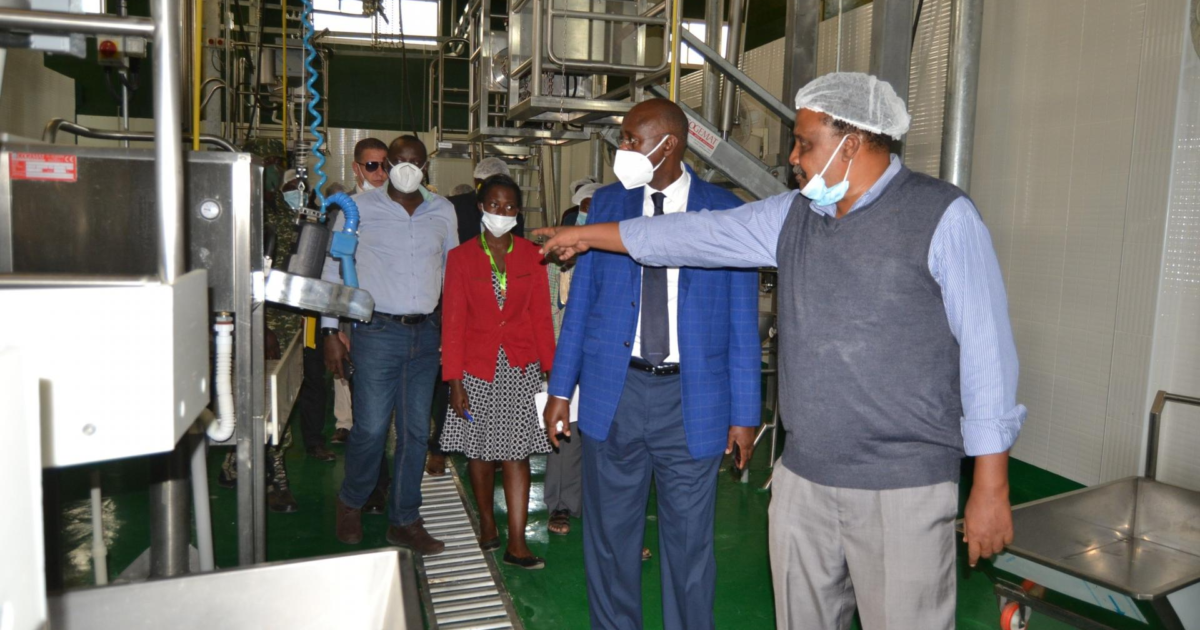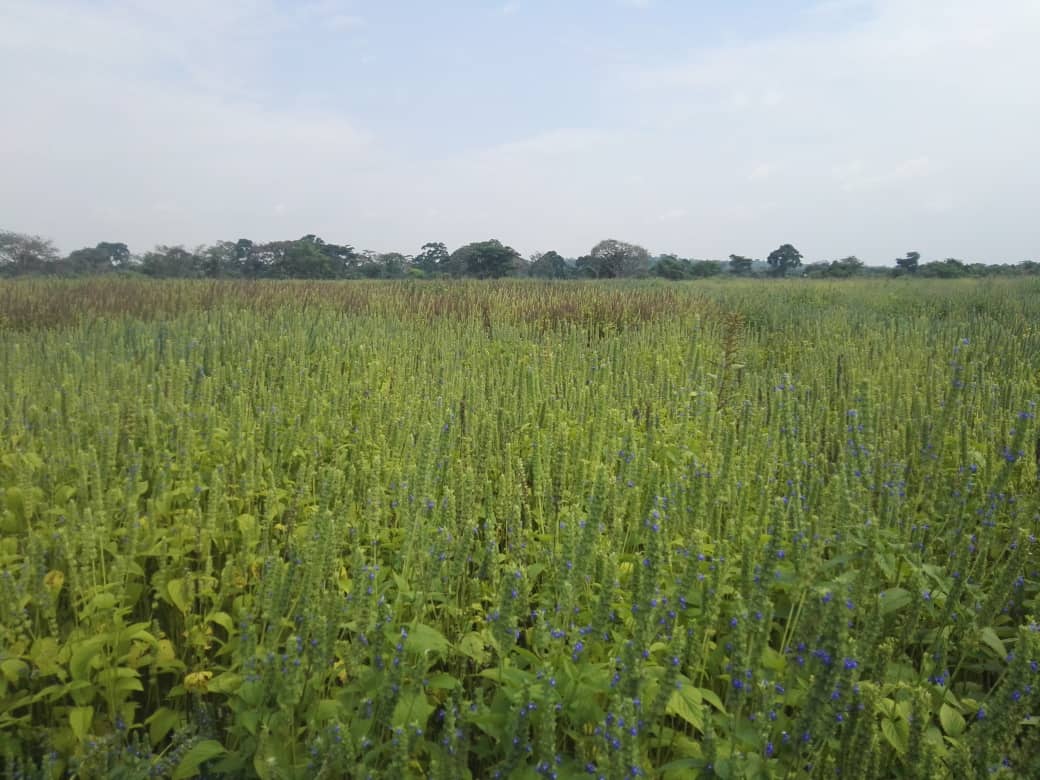Idris Ali Elgadhi, the Managing Director of Pearl Meat Industries pointing state of art machinery installed in thier abattoir located in Migeera town , Nakasongola
The Ministry of Agriculture, Animal Husbandry and Fisheries plans to close abattoirs in cities after failing to maintain hygiene and sale of quality meat, URN reports.
Bright Rwamirama, the State Minister of Animal Husbandry says that the work of slaughtering meat will be restricted to modern abattoirs which are being established outside the cities.
Rwamirama explains that the move is intended to ensure quality meat is being sold to people and animal rights are respected. He says that several abattoirs in cities and towns are unhygienic feeding people poor quality meat which must be stopped.
Rwamirama however didn’t give a timeline when this will be enforced but said this will done after the establishment of enough abattoirs to supply meat.
He revealed that so far three abattoirs will this year start operations in Migyera -Nakasongola, Kiruhura and Bombo -Luwero district.
He also noted that the Ministry is already revising laws to penalize transporters with higher fines who violate animals during transit to slaughterhouses.
Idris Ali Elgadhi, the Managing Director of Pearl Meat Industries Limited says that construction of a modern abattoir worth 6 million dollars has been completed.
Elgadhi revealed that the abattoir can produce 60 tons of beef and 80 tones’ of goats meat per day. He adds that they are ready to sell meat locally and Egypt among other countries.
He adds that they have already secured a supply of cattle from Nakasongola, Lira and Soroti but they are open to all farmers to sell to them.
Sam Kigula the LCV Chairman of Nakasongola District says that the opening of the modern abattoir in the area will stop the exploitation of pastoralists by local traders.
Kigula adds that modern abattoirs also can maintain quality meat supply compared to ordinary which have failed.
Joseph Wandira a cattle trader in Nakasongola however has expressed fears that the government plan may leave hundreds of Ugandans who were working in such abattoirs unemployed.
Beef production in Uganda is estimated at an average of 160,000 metric tones per year.





